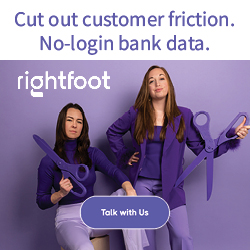startups
A Q&A With Viceland’s Host Of ‘Hustle’ John Henry
March 5, 2020 Entrepreneur and investor John Henry, who also hosted TV show ‘Hustle‘ on Viceland, recently spoke with deBanked Chief Editor Sean Murray about his experience as a young successful entrepreneur (Q&A is below). Henry will be a special guest speaker at Broker Fair 2020 on May 18th in New York City. YOU WON’T WANT TO MISS IT!!!
Entrepreneur and investor John Henry, who also hosted TV show ‘Hustle‘ on Viceland, recently spoke with deBanked Chief Editor Sean Murray about his experience as a young successful entrepreneur (Q&A is below). Henry will be a special guest speaker at Broker Fair 2020 on May 18th in New York City. YOU WON’T WANT TO MISS IT!!!
—–
About John Henry
Voted to Forbes’ 30 Under 30 and Ebony’s Power 100 lists – John Henry is a Dominican-American entrepreneur and investor. Henry started his first business at 18, an on-demand dry cleaning service for the Film and TV industry in New York City, with clients such as The Wolf of Wall Street, Boardwalk Empire, Power, and more. Henry led the company through its acquisition in 2014 — founding and selling his first business by the age of 21. On the heels of his first win, Henry launched Cofound Harlem — a non-profit incubator that aims to foster a robust tech ecosystem North of 96th street in New York City. Cofound Harlem has launched numerous high-growth companies in Harlem, gaining recognition from Fast Company, TechCrunch, Business Insider, and more. He is a former Partner at Harlem Capital, a diversity-focused early stage venture capital firm on a mission to change the face of entrepreneurship. Henry is also the host of VICELAND’s latest show, HUSTLE, which is Executive Produced by Alicia Keys and focused on helping scrappy entrepreneurs grow their business to the next level.
—–
Q (Sean Murray): You started your first business at 18 but what made you want to start one?
A (John Henry): It was driven by necessity more than a desire to be an entrepreneur, but I did exhibit some of the traits that pushed me towards that path. Entrepreneurs tend to have a history of non-conformity where there’s no pre-chartered path and in an environment that demands conformity, anyone that likes to express their own views comes up against a lot of friction. So, for me it was necessity but also part of my character to do things differently.
Q: What kind of lessons did you learn from running a business at such a young age?
A: It’s a serious game and it’s full of responsibility. I was telling myself at one point that I was just 18 and so the struggles I faced running a business could be overlooked because of my age, but the world doesn’t care how old you are. If you’re running a business, there’s no way around the responsibilities it demands.
The other thing is, when you come up against really tough situations, you need to be brave and have courage to go through those moments. I’m glad I had the courage in them. Once you take them head-on, you come out feeling better on the other side.
Q: As a former partner of a Venture Capital firm, what’s the #1 mistake you saw entrepreneurs and business owners make?
A: You’ve got to have macro understanding and micro-chops. Everything is connected, it’s not just knowing your business but knowing where you’re situated in the economic or market cycle and understanding what customer sentiment is. That’s what a lot of entrepreneurs miss. Like if your idea is to make a mobile app, that’s great, but how many apps are already out there? How long have apps been part of the market already? What’s going to make your app stand out from every other app? And this doesn’t apply just to startups, but also existing companies. Every 3 months, you should be asking yourself the business question and evolve if necessary. The hardest part though is when your gut is telling you you’re right but every other person out there is telling you you’re wrong. And that’s something you’ll really have to figure out.
Q: Why has helping minority entrepreneurs and businesses been so important to you?
A: I’m not usually asked why, but I was seeing less and less minority representation among entrepreneurs that were receiving capital. There are some systemic factors that make it harder to get ahead but at the same time people can become inclusive to the point where they’re becoming exclusive. So, I think it’s about helping those that are on their way to overcoming tremendous odds to get far.
Q: Real estate, what can you tell me about your foray into that market?
A: I can say it’s the best business that I have been in so far. Real estate is the #1 fundamental building block of wealth. When I first got into it, I was shocked that you could put down 20% and the bank would put in the other 80%. This is a game of physical assets and I’m glad I came across it when I did. I’m currently building a bedrock of business around real estate, my preference being residential multi-family apartments.
JP Morgan Opens Doors for Startups. Literally.
June 30, 2016 JP Morgan is luring fintech startups by dangling a key card to its doors.
JP Morgan is luring fintech startups by dangling a key card to its doors.
The bank plans to start an “in-residence” program for startups on the block who show potential to ‘disrupt’ and solve problems in areas of automation, blockchain and analytics.
The online program will give chosen startups access to JP Morgan’s systems and network to work on common problems in the bespoke areas of technology. The New York-based banking behemoth has been beefing up its tech arm and has invested nearly $3 billion towards new investments. It has been asserting its presence on the fintech block with the launch of a Venmo-like real time payment service.
Earlier this year, it hired former economic advisor to President Obama, Seth Wheeler to lead its fintech and innovation strategy.
Banks Admit They’re Scared of Startups
March 16, 2016If you cannot keep up with everything that is happening in fintech, you are not alone.
In the post financial crisis world, fintech startups perched themselves in the crevice between the big world of banks and the regulatory reform which controls their free reign. And since then, financial upstarts have only multiplied.
From P2P insurance, realty crowdfunding, marketplace loans and not to forget bitcoin, the capital infusion in fintech testifies for the market hype. In its report in November last year, CB Insights estimated that $24 billion has been invested in fintech startups and half that amount ($12.2 bn) was invested in 2015 alone.
It can be argued that some of these startups with multibillion dollar valuations are essentially smaller banks without the frills. Take SoFi for example, the San Francisco-based online lender is which worth $4 billion known for its touting we-are-not-a-bank image but provides most services from student loans, mortgage lending, personal loans to loan refinancing without the “bank branch.” The company also wants to start a hedge fund.
So, are the banks feeling left out? It depends on whom you ask, but a recent report from PwC surveying 544 CEOs, revealed that 23 percent believed their businesses were “at risk” by fintech innovation and 67 percent of the respondents said that they were under profit margin pressure.
“We thought we knew our customers, but FinTechs really know our customers,” the report quoted a senior bank official as saying. The report ranked consumer banking, payments and wealth management to be disrupted the most by these fintech startups.
The big bucks and the hype that follows it has made regulatory authorities sit up and take notice of the financial services upstarts and bring them under the supervisory purview. And while that may be legitimizing their foothold on the industry, the real questions around project revenues, possible exits and the companies’ wherewithal to handle a complex credit market remain unanswered.
Are we really at a tipping point of innovation or is it just new wine in old bottles?

Square Buys Analytics Startup for Its Merchant Cash Advance Team
March 14, 2016Square has acquired analytics startup Framed Data to better target customers for Square Capital.
The startup mined data using machine learning to predict user behavior and purchasing decisions. Founded by data scientists in 2013, Framed Data will help Square use analytics to provide more capital to more merchants.
Square Capital is a big business for the company. It funded over $400 million in 70,000 merchant cash advances last year. The company’s first earnings report last week showed that it is beginning to bring bigger merchants into its customer base. The majority of Square’s point of sale customers are micromerchants, a fragmented market of low volume businesses.
It’s a crucial time for the company to prove to investors that it can grow beyond point of sale solutions for payments and Square Capital will play a major role in that.

Venture Capital Firm 500 Startups Launches $25M Fintech Fund
February 25, 2016Early stage venture fund, 500 Startups announced a $25 million fintech fund which will invest in nearly 100 startups focused on lending, investment advisory, personal finance management, blockchain, money movement, and insurance.
The accelerator’s other fintech investments include credit management platform, CreditKarma, online bank, Simple, payments startup Flywire and financial comparison site iMoney.
Through a fintech-focused accelerator and a partner program, 500 Startups will coach these companies on regulation, customer relations, marketing and distribution. Spearheaded by Sheel Mahnot, a partner at the firm with fintech expertise, the fund will accelerate 20+ companies per year in the Silicon Valley.

After CEO Exit, California State Probes Zenefits
February 12, 2016 The California Department of Insurance will investigate the San Francisco-based human resources software startup Zenefits after the exit of its head Parker Conrad earlier this week, amidst a regulatory compliance scandal.
The California Department of Insurance will investigate the San Francisco-based human resources software startup Zenefits after the exit of its head Parker Conrad earlier this week, amidst a regulatory compliance scandal.
Zenefits sells cloud-based human resource software for payroll, talent management and health insurance. The startup, founded in 2013, was touted to be one of the fastest growing companies in Silicon Valley with marquee investors like Andreessen Horowitz, Institutional Venture Partners and Fidelity Management.
The company, valued at $4.5 billion, let health insurance reps fake the mandatory 52-hour training course that is legally required to sell insurance. “After they faked the training course, sales reps were directed to sign a certification, under penalty of perjury, that they had spent the required 52 hours doing the work,” according to Buzzfeed News.
California Insurance Commissioner Dave Jones, in a statement, revealed that the department started probing Zenefits last year. “The recent resignation of Zenefits’ CEO Parker Conrad is an important development, but it does not resolve our ongoing investigation of Zenefits’ business practices and their compliance with California law and regulations,” said Jones.
The company’s COO David Sacks (pictured at right) has replaced Conrad as the CEO.
The Zenefits scandal brings to light Silicon Valley upstarts’ tendency to play fast and loose with regulation and compliance.




 They paint their faces, they unsheathe their swords. They look fearless even if they are in fact full of fear. Some wear a full body of armor and others have no armor at all.
They paint their faces, they unsheathe their swords. They look fearless even if they are in fact full of fear. Some wear a full body of armor and others have no armor at all. 


























